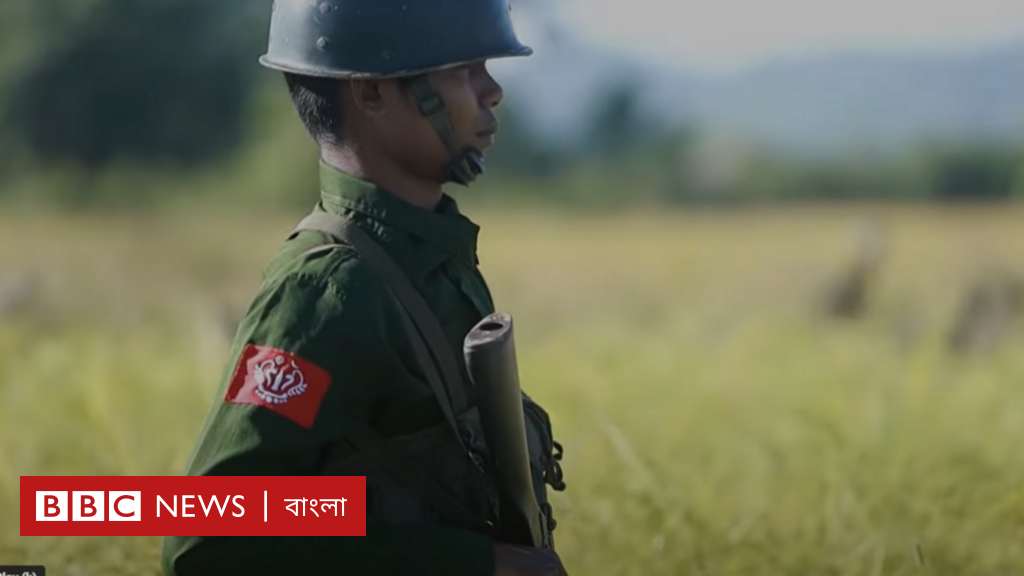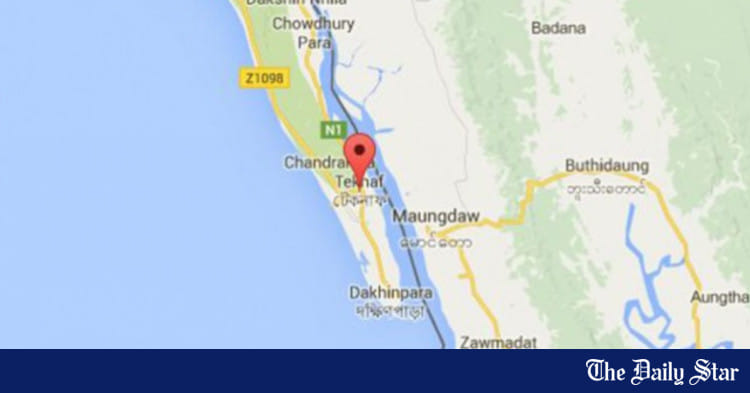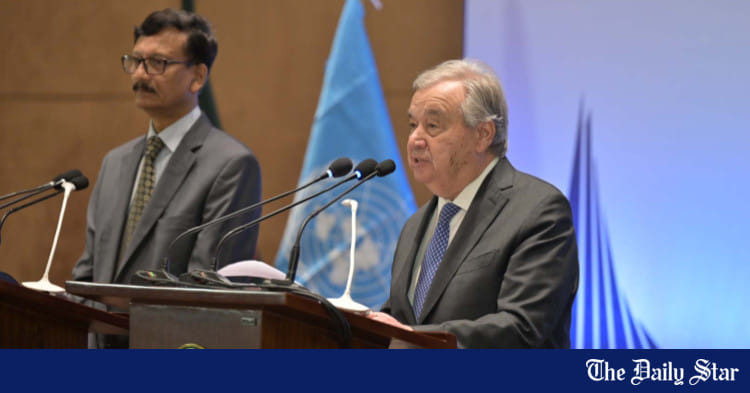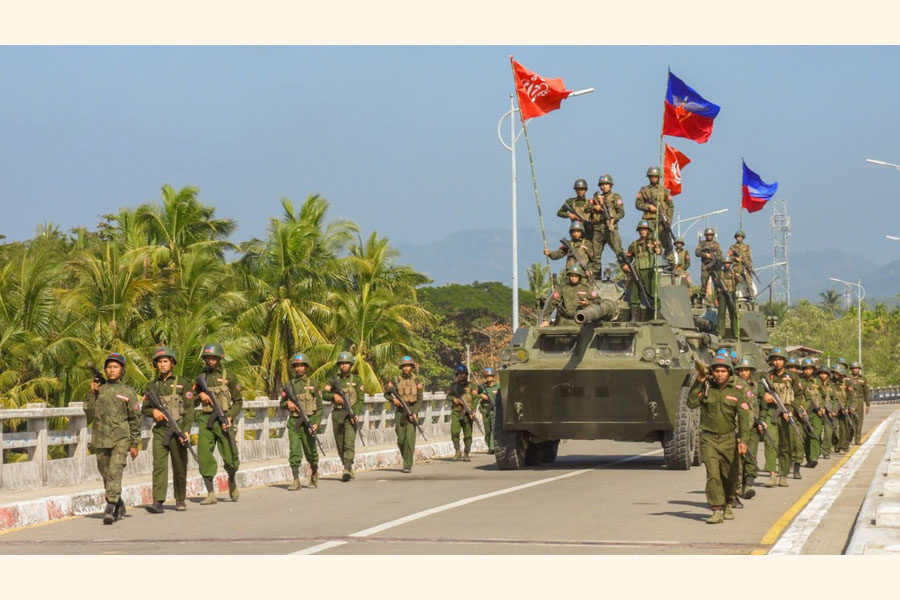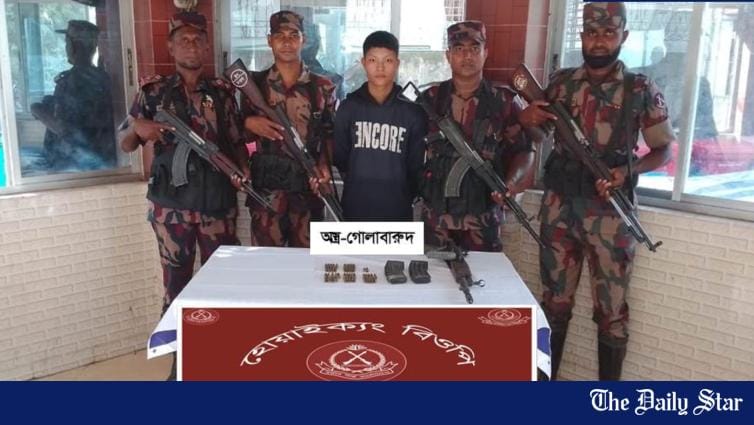Saif
Senior Member
- Messages
- 15,242
- Reaction score
- 7,802
- Origin

- Residence

- Axis Group

Date of Event:
Mar 8, 2025
Govt engaging with Arakan Army
Says CA’s representative on Rohingya issue
Bangladesh is maintaining contact with the Arakan Army (AA), which has occupied some 90 percent of Rakhine State, for the sake of protecting the country's border and Rohingya repatriation, said Khalilur Rahman, the chief adviser's high representative on the Rohingya issue.
"The day the AA raised its flag on our border, I instantly realised it's a new world -- you got to deal with them," he said at a seminar yesterday on the situation in Rakhine and implications for Bangladesh.
The seminar was organised by the South Asian Institute of Policy and Governance (SIPG) at the North South University premises.
Myanmar has been in civil war since the military coup that ousted the democratic government in February 2021.
The National Unity Government, the shadow government formed by the political leaders, and dozens of other ethnic groups, have been fighting the junta since then.
The AA, which seeks autonomy in Rakhine, controls the entire 271-kilometre-long border with Bangladesh and more than a million Rohingyas fled that state to Bangladesh.
"Mind you, this is our border and we have to protect, make it secure and make sure that we work in collaboration with whoever is on the other side. We reached out to them at a certain level," Rahman said.
Before that, he held a meeting with Julie Bishop, the UN secretary general's special envoy on Myanmar, over drafting a statement for the UN secretary general to the AA.
The statement communicated that the AA has to respect international human rights principles and abide by international laws.
At the seminar, Rahman also said, "A new neighbour is emerging and Bangladesh wants to be friendly with them and not dominate them. This is our only land border outside of our border with India. It is also in our national interest to reach out to them. We can begin the process of building trust, building confidence and lay the basis of longtime friendly relations."
He said he made it very clear that Bangladesh does not have any pipeline through Rakhine or any transit projects through Rakhine.
Abdul Hafiz, special assistant to the chief adviser on defence and national solidarity development, said diplomacy, backed by strategic deterrence based on a national consensus, is critical to protecting national interests.
He underscored Bangladesh's priority of ensuring safe, dignified and voluntary Rohingya repatriation.
Keynote speaker Ambassador Md Sufiur Rahman, a senior research fellow at SIPG, provided an analytical overview of the shifting political landscape in Rakhine.
He highlighted that 750,000 people have been displaced from Rakhine and that poverty in Rakhine has ascended to alarming levels.
He believes Bangladesh can play a pivotal stabilising role by providing humanitarian support and strengthening economic ties between Chittagong and Rakhine.
"Economic linkages can serve as a pathway to broader cooperation and peacebuilding," he said, while suggesting leveraging this to secure a peaceful border and a friendly neighbour.
Sk Tawfique M Haque, director of SIPG, urged a pragmatic policy toward the AA by recognising the fast-evolving situation in Rakhine and stopping the slow and silent influx of Rohingya Refugees since October 2023.
Bangladesh should balance security concerns with economic and diplomatic goals, he added.
Says CA’s representative on Rohingya issue
Bangladesh is maintaining contact with the Arakan Army (AA), which has occupied some 90 percent of Rakhine State, for the sake of protecting the country's border and Rohingya repatriation, said Khalilur Rahman, the chief adviser's high representative on the Rohingya issue.
"The day the AA raised its flag on our border, I instantly realised it's a new world -- you got to deal with them," he said at a seminar yesterday on the situation in Rakhine and implications for Bangladesh.
The seminar was organised by the South Asian Institute of Policy and Governance (SIPG) at the North South University premises.
Myanmar has been in civil war since the military coup that ousted the democratic government in February 2021.
The National Unity Government, the shadow government formed by the political leaders, and dozens of other ethnic groups, have been fighting the junta since then.
The AA, which seeks autonomy in Rakhine, controls the entire 271-kilometre-long border with Bangladesh and more than a million Rohingyas fled that state to Bangladesh.
"Mind you, this is our border and we have to protect, make it secure and make sure that we work in collaboration with whoever is on the other side. We reached out to them at a certain level," Rahman said.
Before that, he held a meeting with Julie Bishop, the UN secretary general's special envoy on Myanmar, over drafting a statement for the UN secretary general to the AA.
The statement communicated that the AA has to respect international human rights principles and abide by international laws.
At the seminar, Rahman also said, "A new neighbour is emerging and Bangladesh wants to be friendly with them and not dominate them. This is our only land border outside of our border with India. It is also in our national interest to reach out to them. We can begin the process of building trust, building confidence and lay the basis of longtime friendly relations."
He said he made it very clear that Bangladesh does not have any pipeline through Rakhine or any transit projects through Rakhine.
Abdul Hafiz, special assistant to the chief adviser on defence and national solidarity development, said diplomacy, backed by strategic deterrence based on a national consensus, is critical to protecting national interests.
He underscored Bangladesh's priority of ensuring safe, dignified and voluntary Rohingya repatriation.
Keynote speaker Ambassador Md Sufiur Rahman, a senior research fellow at SIPG, provided an analytical overview of the shifting political landscape in Rakhine.
He highlighted that 750,000 people have been displaced from Rakhine and that poverty in Rakhine has ascended to alarming levels.
He believes Bangladesh can play a pivotal stabilising role by providing humanitarian support and strengthening economic ties between Chittagong and Rakhine.
"Economic linkages can serve as a pathway to broader cooperation and peacebuilding," he said, while suggesting leveraging this to secure a peaceful border and a friendly neighbour.
Sk Tawfique M Haque, director of SIPG, urged a pragmatic policy toward the AA by recognising the fast-evolving situation in Rakhine and stopping the slow and silent influx of Rohingya Refugees since October 2023.
Bangladesh should balance security concerns with economic and diplomatic goals, he added.

